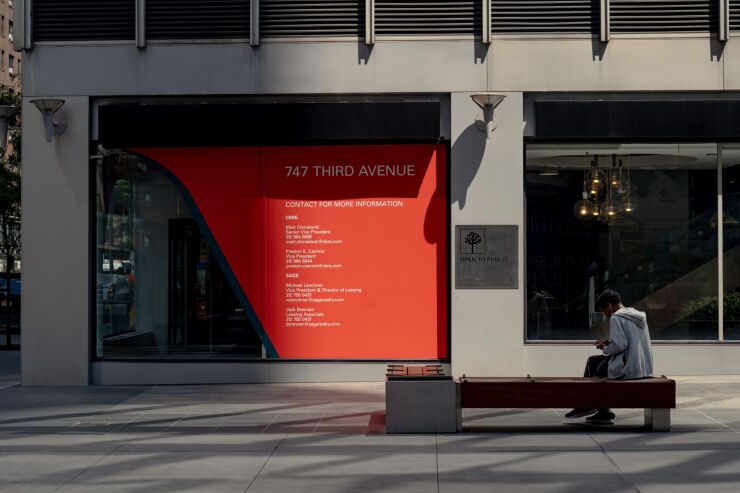
Small and midsize banks continued to post strong credit quality numbers in the first quarter, despite heightened worries about commercial real estate and increased cost pressures on small-business borrowers.
Still, given mounting expectations for a recession in 2023, an increasing number of lenders boosted reserves for potential future loan losses. They cautioned that office properties — hampered by enduring remote-work trends — and CRE more broadly could face
Some community banks that cater to local businesses also said they were closely monitoring those customers' ability to absorb both higher expenses imposed by festering inflation and increased borrowing costs following the Federal Reserve's yearlong campaign to hike interest rates.
The National Federation of Independent Business said its most recent monthly snapshot of small-business-owner sentiment worsened in March. Its
"Small-business owners are cynical about future economic conditions," said NFIB Chief Economist Bill Dunkelberg.

"We're still seeing good leasing activity on the office parts of our portfolio," though "it's not because the world is out there running to buy office space and there's a giant competition to rent office space," Gleason said. "It's because we've got the best properties and markets or submarkets and the transactions that we've done make sense, and there's demand for those. Now, is leasing slower than it was four years ago, or five years ago, or three years ago before COVID? Yes, it is."
Older properties, he added, are "not going to, by and large, benefit from the flight-to-quality sort of attributes that our developers of new properties enjoy. So they're going to be harder to lease up."
Bank OZK increased its first-quarter provision for credit losses to $35.8 million. That was up from $32.5 million for the previous quarter and up from $4.2 million a year earlier.
FB Financial in Nashville, Tennessee, said it would pull back on commercial lending until it sees clarity on which industries are at risk for lofty loan losses. The $13.1 billion-asset bank's executives said during the company's recent earnings call that it was managing down its CRE exposure, including to smaller businesses, as well as construction-and-development loans.
President and CEO Christopher Holmes said loan losses remain at historically low levels and the bank has "not found any disturbing trends in our portfolio." But recession fears combined with the March
The failures were accelerated by runs on deposits, and this in turn, is motivating banks of all stripes to focus more on bolstering their funding than on new lending. First Republic Bank's failure on Monday further
"We also understand this downturn and an industrywide focus on liquidity could result in a credit crunch that's likely to result in losses," Holmes said. "Despite the benign results to date, we're even more conservative with our loan portfolio than typical. … We're not eager to aggressively grow the asset side of the balance sheet until we can understand which sectors are due for outsize losses. At this point, we share broader concerns about CRE office loans and have increased our monitoring of that portfolio as a result."
FB Financial recorded a modest provision for credit losses of $491,000 for the first quarter, though that was up from a net recovery the previous quarter.
Small-business loan approval percentages at small banks fell two percentage points in March from the prior month to 19.1%, according to the latest Biz2Credit Small Business Lending Index, indicating a broader pullback in lending among community banks is afoot.
The banking crisis in March "shook the confidence of small-business owners. Many of them rushed to take their deposits out of small and midsize banks. That development hurt the banks' ability to lend" and made it "even harder for companies to secure capital," said Rohit Arora, CEO of Biz2Credit, a small-business finance and financial technology firm.
Against that backdrop, Cathay General Bancorp in Los Angeles reduced its guidance for overall loan growth for 2023 to between 1% to 3% from a previous range of 3% to 5%. The $22 billion-asset bank also bolstered its provision for credit losses to $8.1 million in the first quarter, up from $1.4 million for the final quarter of 2022.
Cathay Chief Financial Officer Heng Chen said during the company's earnings call that loan losses remain low overall, but the bank did record one large CRE charge-off in the first quarter, and uncertainty remains elevated.
"My crystal ball is not perfect, but we hope we don't get large charge-offs again in the second quarter," Chen said.






